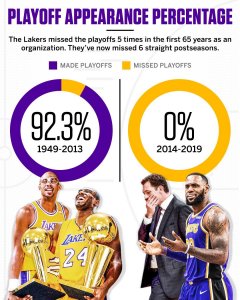There is, however, one more reality that must be dealt with that makes a move to Houston appear even more attractive. While the Lakers can offer a fifth year that no other team can match, that fifth year will be a player option. And because Howard will be 31 at the beginning of a potential fifth year, he would likely opt out and go after one more max contract. In fact, the only way Howard is likely to ever play a fifth year in L.A. is if he is so broken down or his game so diminished that he couldn’t command more on the free agent market five years from now than the salary provided for in the final year of his Lakers contract.
This means we can actually compare apples to apples: What would Howard earn in four years in Houston versus the four years he’s likely to spend in L.A.?
The Lakers, by virtue of being able to give annual raises in excess of what Houston can offer, would still offer a larger gross payday: $91 million versus $87.6 million for Houston. But with the difference now reduced to $3 million, the state tax impact becomes magnified. Howard would pay nearly $12 million in California tax over the four years if he signs with the Lakers, but only $1,400,000 in state tax should he sign with Houston. This means that a four-year deal with Houston would actually yield an additional $7 million in after-tax income.
All of a sudden, fleeing L.A., once thought impossible for Dwight Howard, suddenly looks a lot more likely.



























